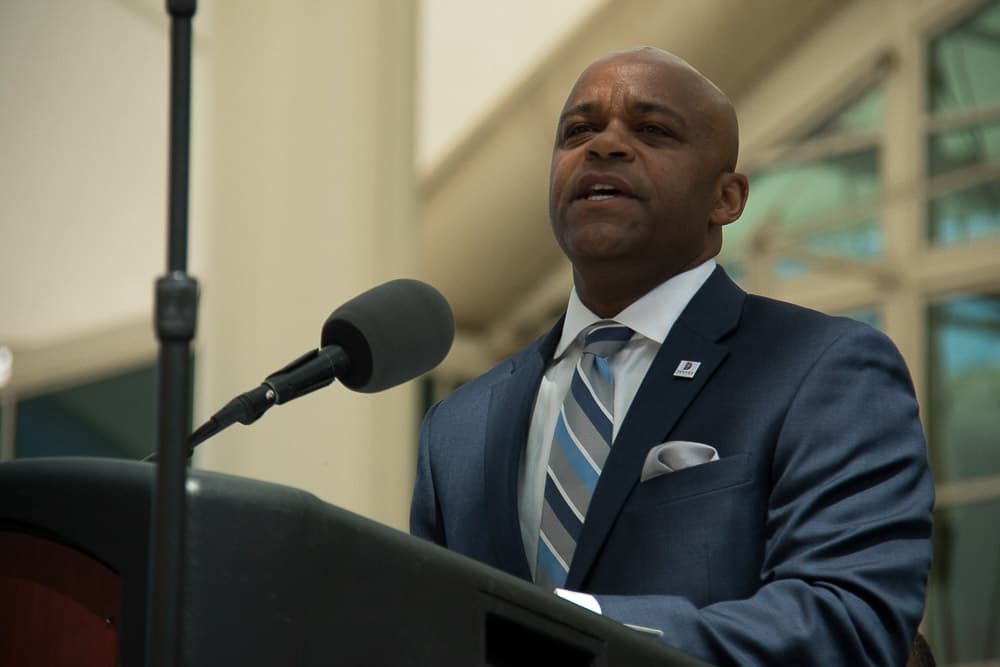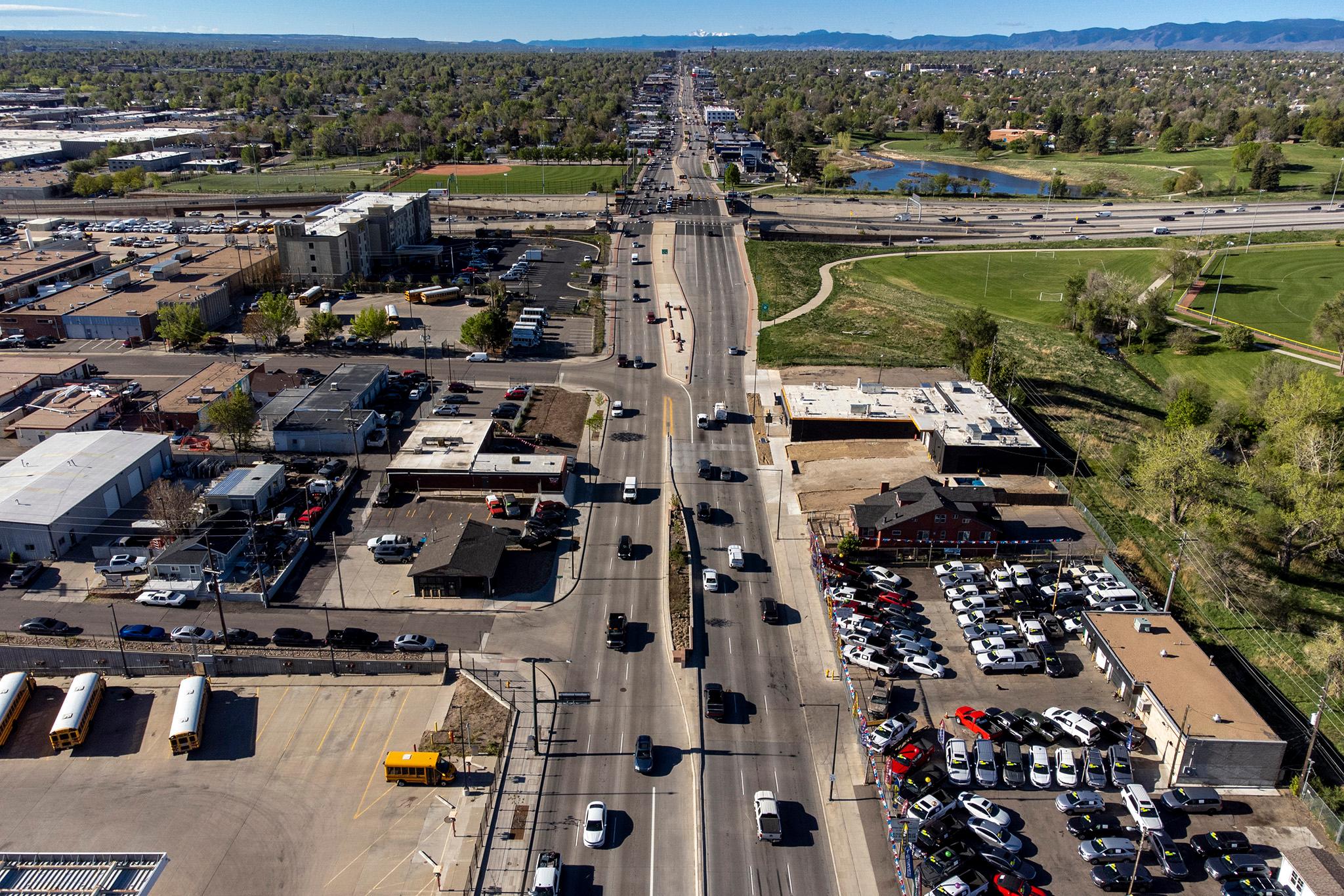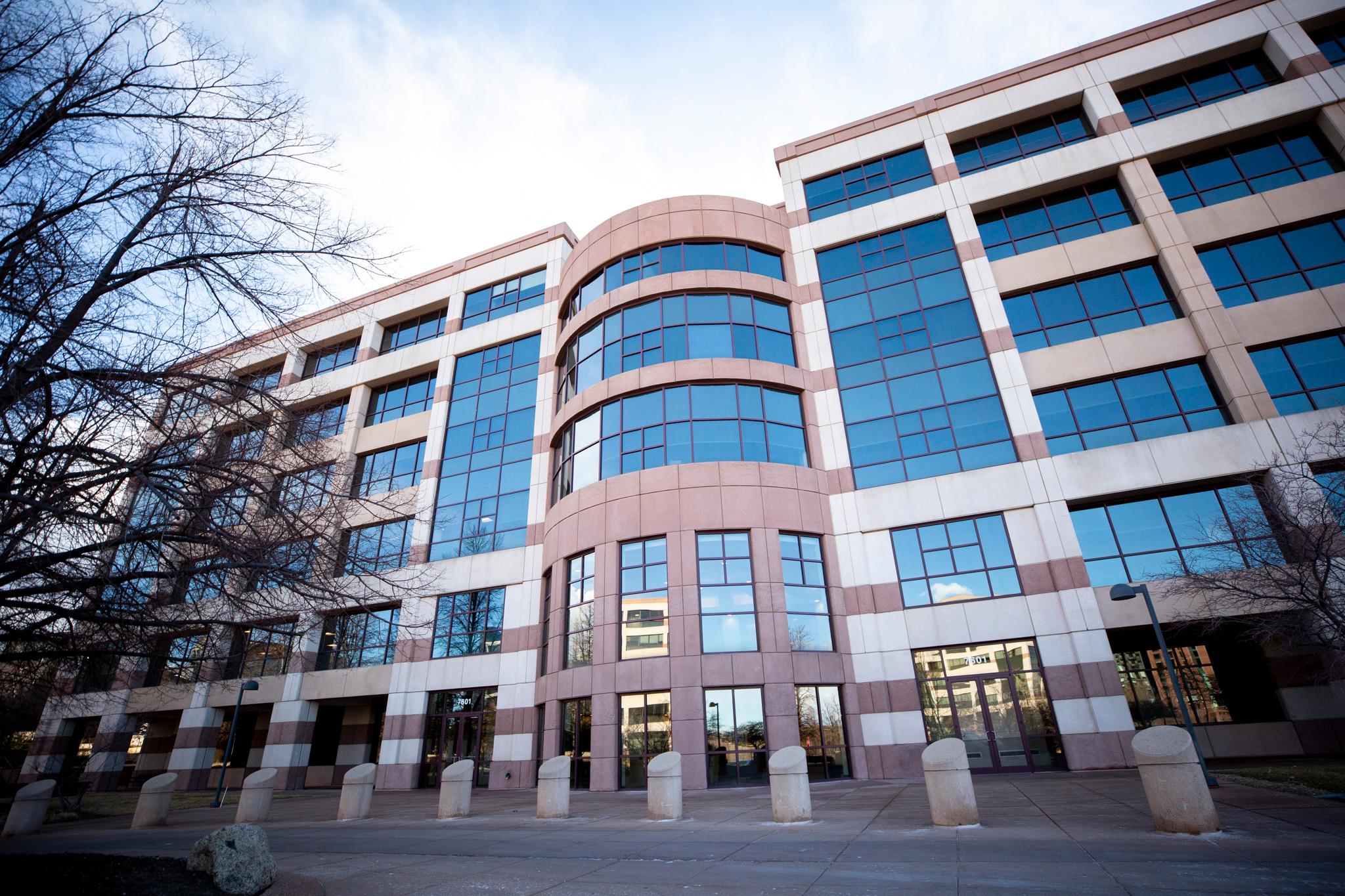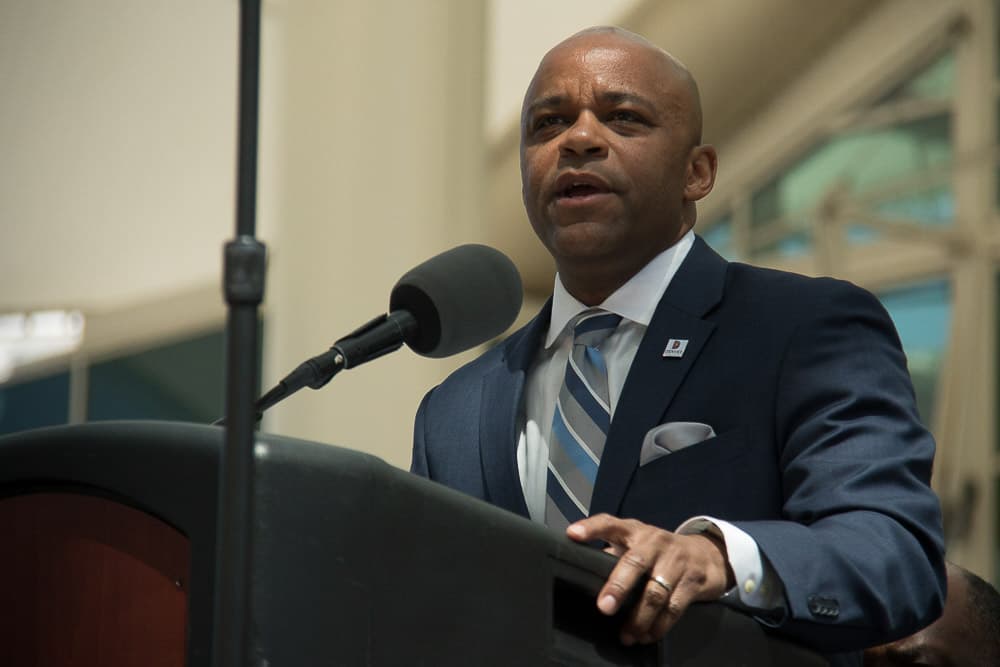
Mayor Michael Hancock delivered his 2016 State of the City address from a podium in the Plaza @ DEN in front of the new Westin Hotel at Denver International Airport. The opening of the hotel and the University of Colorado A Line train between Union Station and DIA are achievements that Hancock has been eagerly anticipating since he was sworn into office back in 2011.
The state of the city, Hancock was thrilled to report, is "stronger than ever before."
But he pivoted quickly, far more quickly than in years past, to those who feel the city's rising waters slipping over their heads.
"For too many residents, the benefits of a strong economy remain out of reach and too many neighborhoods remain overlooked and underserved," he said.
Hancock touted the achievements of his administration to date and laid out new initiatives in the coming year:
- Denver will reach the 3x5 goals laid out by Hancock in 2013 -- 3,000 new units of affordable housing in five years -- a year early.
- Hancock's administration will present detailed plans for a permanent affordable housing fund on Wednesday. This will be funded with a combination of property tax increases and a linkage fee on every square foot of new development. The fund should raise at least $150 million in its first 10 years.
- Denver will establish a new Office of Housing and Opportunities for People Everywhere (HOPE) to bring a more coordinated approach to homelessness.
- The city will launch a pilot program this fall to hire 12 homeless people a week as day laborers to help them develop job skills and connect to more stable employment.
- A new co-responder program teams mental health professionals with patrol officers to connect homeless people to services and treatment.
- Denver will deploy neighborhood teams to Sun Valley, Westwood, Villa Park, Globeville, Elyria-Swansea and Montbello with resources to help people stay in their homes.
- Denver will establish two new economic opportunity zones, one in west-central Denver and one in northeast Denver, where businesses will receive bonuses for hiring local workers, paying good wages or investing in local schools.
- Hancock urged Colorado voters to support a minimum wage increase that likely will appear on the November ballot.
- The city itself will "ban the box" starting in August, meaning the city will no longer routinely ask about criminal background on the job application. Getting rid of this box on all job applications has been a priority for activists who see lack of employment opportunities for felons contributing to a cycle of crime and incarceration.
Hancock is still very much a booster for the city.
"When you stand here, at one end of the Corridor of Opportunity and look downtown with the mountains as a backdrop, the possibilities seem endless," he said.
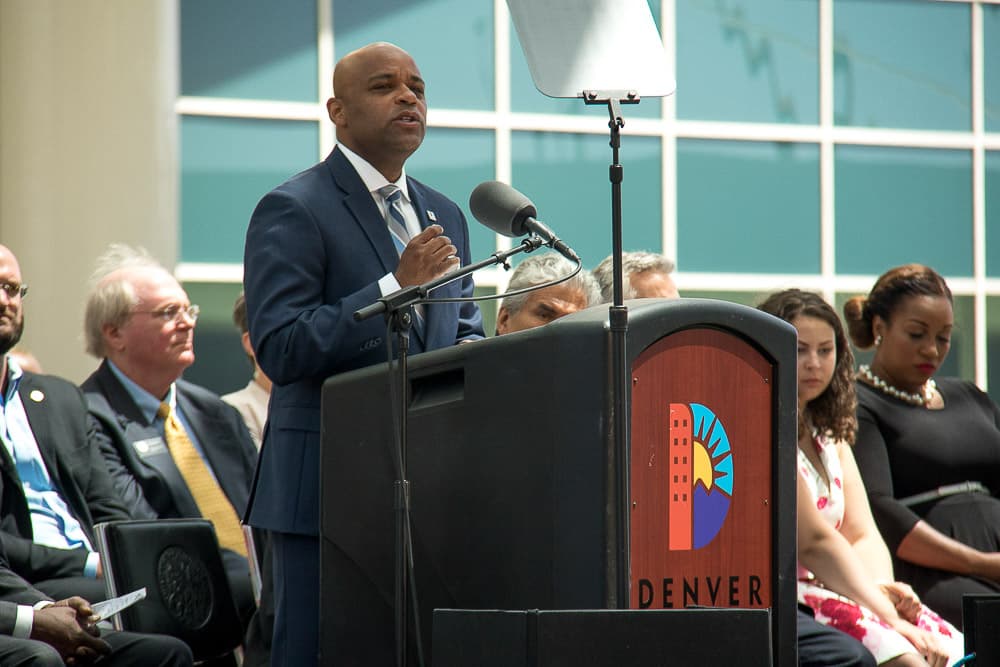
He envisions helping people stay in the city not by slowing the growth in housing costs but by providing meaningful workforce training to give people not just jobs but careers.
"We are laser-focused on neighborhood preservation and keeping residents from being displaced by growth and development," he said. "We can have development without displacement. It does not have to be either-or."
Signs of dissatisfaction were present at the event. In the middle of the speech, homeless activists stood up wearing t-shirts that spelled out "END THE SWEEPS." They filed out quietly after a few minutes.
Other spectators wore "Ditch the Ditch" buttons in opposition to the planned widening of I-70 and union t-shirts calling on city to make sure new contractors at DIA come to the table with workers.
There will be a "People's State of the City" at 3 p.m. in front of the City and County Building offering a different perspective
After his speech, Hancock acknowledged some of the negative impacts of economic growth came over the city more quickly than he expected.
"Certainly the growth and the impact on our housing has been huge, and it certainly came upon us very rapidly," he said. "Every mayor in the country would not mind their city being a destination. We are proud of the fact that people want to live here, want to stay here, want to raise their families here. That means we have to meet these challenges going forward."

